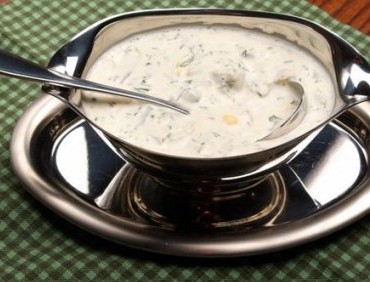Op-Ed by Alyona Getmanchuk, Director of the Institute of World Policy for Kyiv PostThe closer Ukraine gets to inking a free trade agreement with the European Union, the more negotiations take on the taste of French cuisine.
In ordinary life, Ukrainian negotiators would welcome exquisite dishes sauced with béchamel, one of the mother sauces of French cuisine, or savoring aperitif champagne or dessert French cognac. But as the latest round of talks in Brussels approach on April 4, the masterpieces of French cuisine could leave a bad taste in the mouths of Ukrainian negotiators.
French negotiators taking part in negotiations between Brussels and Kyiv are posing a big challenge for Ukraine. Even as a Ukrainian who is eager for my country to get the best deal, I admire the zeal with which French negotiators are defending the interests of their national producers.
When France’s representatives say that “every 1,000 tons of meat imported from Ukraine threatens 100 French beef producers with bankruptcy,” they should be respected. The same goes for their efforts to protect trademarks such as “champagne” and “cognac.”
It is also understandable why the French doubts Ukraine’s intentions. Even at home in Ukraine, not everyone believes that President Viktor Yanukovych – seen as vulnerable to big business ambitions and pressure from the Russian leadership – will muster enough courage to bring big competitors from the EU onto home turf through a free trade agreement.
However, it is also difficult to understand why our EU friends do not express as strong displeasure about the cognac brand being used in Armenia, as they do when it comes to Ukraine. In another example, tiny Moldova gets a quota to export 50,000 tons of grain to the EU, when Ukraine, a vast agriculture power, is being offered a quota of only 12,000 tons of barley.
While such issues remain to be resolved, it looks as of late that Ukraine is really eager to sign the free trade agreement with Brussels by the end of the year. First Deputy Prime Minister Andriy Klyuyev, who recently took over negotiations and proved a strong negotiator, is a sign of the seriousness of the negotiations.
Indirect confirmation that Ukraine is moving fast in this direction can be seen in the panic coming from Russian Prime Minister Vladimir Putin, who threatened to shut off Russia to Ukrainian goods if the EU deal is reached. Such threats should not be taken lightly. Russia has shown in recent years that its intentions and warnings are serious.
Take, for example, Ukraine’s efforts in past years to integration into NATO. As Russia did not believe in the sincerity of Ukraine’s aspirations to join the military alliance under ex-President Leonid Kuchma (1994-2005), it did not raise serious objections. But under ex-President Viktor Yushchenko (2005-2010), Russia made every effort to take this issue off the agenda – and to pressure Europe into taking NATO prospects for Ukraine off the table. European states should, thus, expect mounting pressure from Russia over the free trade agreement.
To draw a line under the negotiations in June, the EU and our French friends, in particular, should realize that it is hard to achieve any result while the EU keeps on protecting its national producers.
It should not be forgotten that it was under the French presidency in the EU that the decision to undertake a free trade deal with Ukraine was taken. Therefore, the signing of such an agreement, even if reached under the Polish presidency, could be a French triumph as well. On that day, a champagne or cognac toast would be most appropriate, perhaps with a tasty béchamel-laced croque-monsieur.




Comments theme
Comments themeComments themeComments themeComments themeComments themeComments themeComments themeComments themeComments themeComments themeComments themeComments themeComments themeComments themeComments themeComments themeComments themeComments themeComments themeComments.